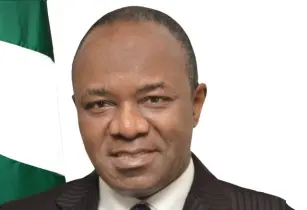Dr Emmanuel Ibe Kachikwu, Nigerias petroleum minister reflected on the challenges of the past two years and urged "drastic change" for the months and years ahead in the countrys hydrocarbons industry
The minister gave the opening address on the first day of Nigeria Oil & Gas (NOG) conference proceedings, which is being held this week in Abuja. He said that when the oil price was around US$120/barrel, "the world was a beautiful place to be" in terms of project development and access to finance. However, he described the events surrounding the latest downturn as "a lesson in history for all of us".
Dr Kachikwu said that while technology has made operations easier, problems such as poorly maintained or underdeveloped infrastructure, namely decades-old pipelines and neglected refineries, as well as a glut caused by overproduction have contributed to the current crisis.
"We never saved as a nation ... there was no investment in infrastructure ... there was massive expenditure and massive subsidies ... and a lot of fraud ... Nigeria was just not prepared for the decline," he told the conference.
In his address, the minister committed to the Nigerian government better meeting cash calls. Regarding infrastructure development, Dr Kachikwu said that "the government is not in a position to fund infrastructure [and there is a need to] bring private investment [which is] essential for the industry to work effectively."
To this end, Dr Kachikwu urged improved relationship-building between the public and private sectors, as well as "releasing assets to the private sector."
Refineries and depots, as well as pipelines, are all required as part of the infrastructure development, he added.
"We need to move away from the old model," Dr Kachikwu said. For the Nigerian hydrocarbons industry to have a strong business case, he told NOG delegates that the cost of production must fall.
On the issue of attacks on oil facilities by militants, he said Nigeria should aim for zero shutdowns.
"I'm sure it sounds crazy but I believe it's possible," he said.
He concluded his address by outlining his "wish list" for reform in the Nigerian oil and gas industry. These included working more closely with state governments, ensuring all projects benefit citizens, particularly as a means of preventing militancy, and dealing with militants by "working faster than the speed of their anger".
Ensuring the NNPC is competitive is another element of Dr Kachikwu's vision, as well as policies to "aggressively develop" gas, especially gas-to-power projects.
The event website is: wwwcwcnog.com




